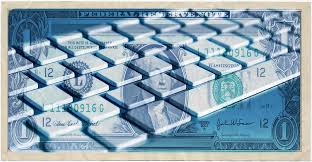Vinnie Van GO asked personal finance expert Maricel Tabalba for her tips when traveling abroad:
Do your homework before you finish packing and handling your finances overseas will be a breeze. While there’s little you can do in advance to avoid the expenses of, say, breaking your camera or ordering a few too many margaritas, there are plenty of other ways that you can avoid financial mishaps during your travels.
Some important banking info can keep you from being caught by surprise – act wisely, and prepare yourself with the following tips for your trip.
1. Inform Your Bank and Credit Card Issuer of Your Trip
Financial institutions often block transactions coming from unexpected locations, such as foreign countries. They do this to guard against fraudulent activity and identity theft. Call your banks and credit card companies in advance of your journey and tell them where you’ll be going and when. They’ll then be aware that you’ll be using your card or account from those locations. If you’re still nevertheless blocked from buying what you want, a simple call to customer service should resolve any issues that crop up.
2. Acquire Local Currency
Cash is still quite useful especially in certain geographic regions where credit card acceptance is spotty at best. Convert your dollars into the local currency, but beware of doing so at the airport. You’ll get a much better exchange rate from a bank or by withdrawing money at an ATM. Merchants may offer to accept your USD and convert it at the time of purchase, but they might use unfavorable rates of exchange, so it’s best to keep a few hundred dollars’ worth of local money.
3. Bring Multiple Types of Payment
Relying solely on one means of payment is basically rolling the dice as far as being able to buy what you need. Rules about which payments options are accepted vary from place to place, so it’s prudent to have at least one backup handy. Try to bring with you both a Visa and a MasterCard issued by separate companies. This way, even if one of them doesn’t work right, you can try your luck with the other.
4. Explore Specialized Payment Methods
Traveler’s checks and pre-paid debit cards might save the day if your credit card is declined or stolen.They’re also appropriate for paying wherever credit isn’t accepted. If nothing else, they provide extra methods of payment, giving you more flexibility.Most credit cards charge fees when you make purchases
abroad, but there are foreign-friendly credit cards that don’t. With the right card, you may even be able to accumulate cash back or other rewards on the purchases you make in other countries.
5. Do Your Banking Online
Online banking allows you to transfer money, check your balances and perform many other banking functions without having to walk into a brick-and-mortar location. This is perfect if your bank doesn’t have branches in the area you’re visiting. You can also probably set up automatic bill payment so that you don’t fall behind on your obligations while you’re out of the country.
Certain stressors are unavoidable when traveling, but money woes don’t have to be among them. Save money, lower your expenses and protect your peace of mind with the tips we’ve shared above.
About our guest writer:
Maricel Tabalba is a freelance contributor for Credit.com who is interested in writing about personal finance advice for Millennials and college students. She earned her Bachelor of Arts in English with a minor in Communication from the University of Illinois at Chicago.

